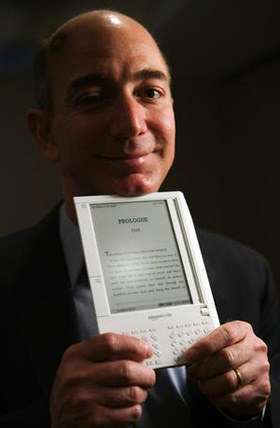What Jeff Bezos Can Bring to The Washington Post

What, exactly, does Jeff Bezos have in mind for The Washington Post? So far, he hasn't exactly offered a lot of clarity. "There is no map, and charting a path ahead will not be easy," he wrote in a letter to the Post's employees.
I've heard some worries that he'll use it to wield political influence, even if only subtly. Others have speculated that he'll look for ways to bring profitability back to big-time newspaper journalism.
I'm not so sure I buy either theory. Bezos has, of course, made an awful lot of money. But he's repeatedly demonstrated that he's not the kind of person who is strictly out to maximize short-term profits. He's invested in not-exactly profitable projects like long-term private spaceflight and multi-million dollar mountain-side clocks designed to last 10,000 years. He even kept Amazon running at a loss for far longer than many investors thought necessary—and he continues to let the retailer slide by on razor-thin profits, and occasionally even losses, most quarters. This is not someone whose only interest is profit making.
Nor does he come across as someone who is devoutly ideological, at least in the traditional political sense. He's given some money to Republicans, and some to Democrats, and funded other politically oriented causes (including the Reason Foundation). His wife donated $2.5 million to a Washington state campaign to legalize gay marriage. But in general, politics don't seem to be what animates him.
So what does? Speaking broadly, the threads that connect various Bezos projects are: disruption, innovation, experimentation, and value creation—which, to be clear, is not necessarily the same as the creation of profits. And it's hard to think of a richer target for all of those elements than major-market newspaper journalism, which is still struggling to escape the potentially deadly gravitational pull of the industry's legacy practices and self-conception.
Bezos probably won't be bound by any of that. And so he'll be free to experiment with newsgathering and delivery mechanisms, with all sorts of presentation overhauls, and with ways to combine traditional journalism capabilities with other, newer businesses. He'll probably push for an increased, intensive customer-focus, which he seems obsessed with, and which really seems to be a driving factor in Amazon's success. His letter to Post employees even hints at this a bit, saying that "the paper's duty will remain to its readers and not to the private interests of its owners."
What exactly will that mean? More emphasis on trying new things just to see what works, I suspect, and more emphasis on in-house entrepreneurialism. This could be very good for young journalists who can successfully conceive and build new products and projects. It might also lead to a more rapid transition to an all-digital product.
My guess is that Bezos doesn't entirely know yet himself. But he's always been drawn to markets that are too set in their ways and in need of a major shaking up from the outside. And the major-metro newspaper industry definitely counts.
Matt Welch noted the sale of the Post yesterday afternoon. Virginia Postrel wrote about Bezos shaking up the book market with Amazon all the way back in 1996.


Show Comments (48)